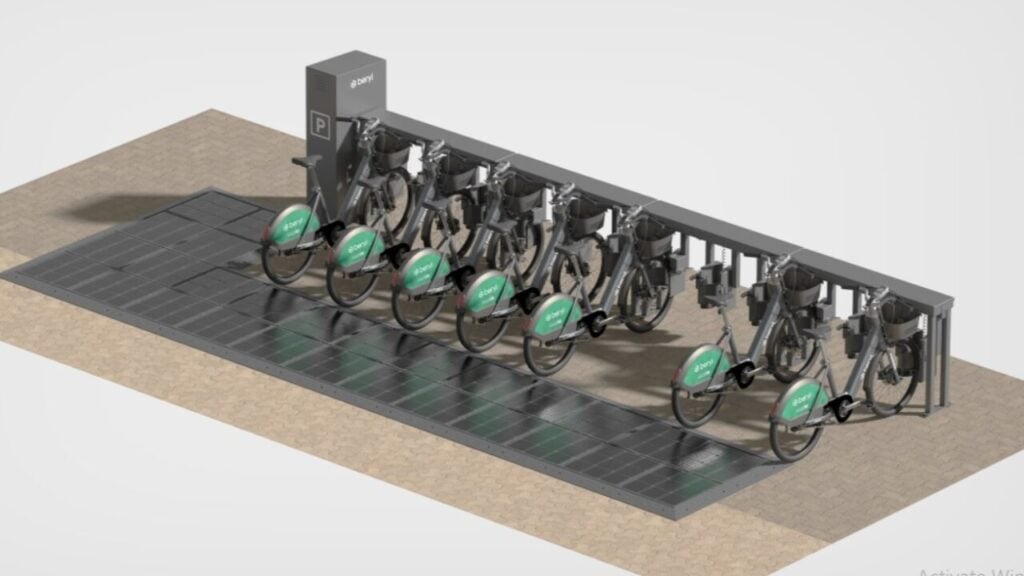
Cornwall Council and e-bike hire provider Beryl have secured funding for a “groundbreaking” solar-powered e-bike charging project.
Six hubs, strategically spread across the county, will use rubberised solar panels to charge Beryl’s e-bikes, reducing the number of battery swaps Beryl staff need to perform each day. The first hub is set to begin installation shortly, and all six hubs are expected to be completed by March 2025.
Previous analysis of the UK has noted several areas that generate sufficient solar energy to power e-transport charging hubs. Beryl notes that many of these areas already play host to Beryl e-bike hire systems, raising the exciting potential of a future trial rollout of this solar tech across the country.
Beryl believes that the increased efficiency and reduction in operational costs brought about by this project could generate up to 50,000 more e-bike trips across Cornwall each year.
Beryl head of policy, Patrick Donnelly, said: “We’re really excited to deliver what could be a groundbreaking project for the industry, offering a blueprint for the delivery of successful e-share schemes in less densely populated rural areas.
“Without the need for grid connection, the hubs will also reduce the scheme’s carbon footprint and operational costs, making it more feasible to expand into new areas and maximise scheme potential.”
Funding has been awarded under the Transport Decarbonisation Demonstrators programme, funded by the Department for Transport (DfT) and Innovate UK. This funding scheme aims to support solutions that can both lower local transport carbon emissions and increase cooperation between businesses and local authorities, with £1 million of the available pot specifically allocated for projects seeking to facilitate decarbonisation in rural areas.
Connor Donnithorne, Cornwall Council cabinet portfolio holder for transport, added: “We want to support residents to make more sustainable choices about how they travel. This funding will not only increase the availability of e-bikes in areas such as Falmouth, Penryn and Newquay where we know they are in high demand, but also support our work to reduce Cornwall’s carbon emissions.”
PV system development could boost solar innovation
Beryl’s project will use rubberised solar panels installed within the street to power its e-bike charging hubs, but new developments in solar cell technology could make the next generation of solar e-mobility projects much more efficient and take up less space.
As recently reported by Solar Power Portal, scientists at the University of Oxford recently unveiled their latest breakthrough in solar PV technology, an ultra-thin material that can be applied to “almost any building”. The new thin-film perovskite material is able to deliver up to 27% conversion efficiency while being almost 150 times thinner than current silicon wafers.
A version of this article was first published on our sister site Current±. You can read the extended version here.

